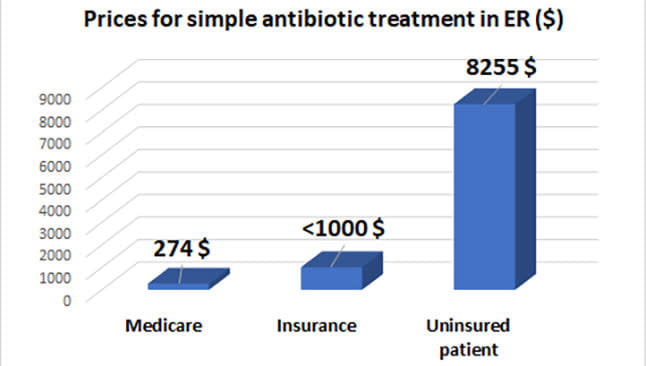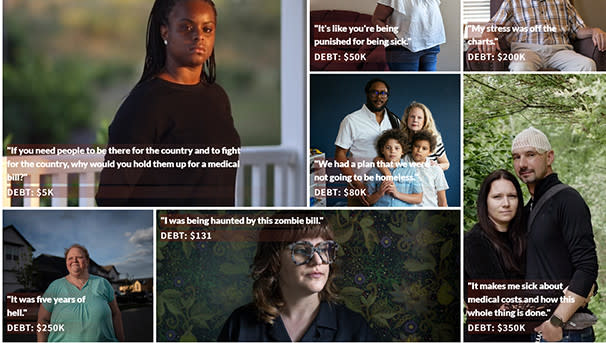Overcharged & Underserved - California Healthcare Pricing
That ER bill can come back to bite you: while hospitals are required to treat you, they can still bill outrageous prices. Particularly, uninsured Americans are often forced to choose between lifesaving care and bankruptcy. Hospitals can freely set their prices for services, colloquially known as "fantasy pricing". Why is no one talking about this? Because insurance negotiates a completely different set of prices that are more reasonable ("reimbursement rates"), and most Californians are covered somehow.
The very poor get MediCAL (incomes under $15000/yr), seniors get Medicare, and those employed by larger businesses have health insurance. One group is missing: ~3 million people are uninsured in California. These are mostly low-income workers: Disqualified from MediCAL, employed by small businesses or self-employed (landscaping, contracting, personal services, hairdressers, gig economy), they make enough to put food on the table but not enough to buy expensive health insurance, and are often forced into bankruptcy by excessive medical bills. This is not an issue of people not wanting to pay a fair price, it's an issue of people having no leverage to negotiate a fair price.

In response to outrage at sky-high hospital bills, CMS has ruled that hospitals now need to make their pricing lists ("chargemasters") transparent and available for data mining.
My project will analyze this dataset for California and try to understand pricing differences for often-used services and learn:
1) Who charges the highest prices?
2) Why?
3) What can be done about it?
Knowing about the extent of pricing differences for similar care could be helpful for uninsured patients, as they could try to go to a reasonably priced hospital for care. I hope to direct some media attention to the worst offenders and invite more scrutiny towards billing practices. Also, quantitative data will be useful for advocating for policy change. A simple intervention like capping self-payer prices at a multiple of the insurance negotiated reimbursement rate would still allow hospitals to make money, but ensure Californians do not have to pay astronomical prices for simple services.
The $5000 raised for this project will contribute to the following main costs:
- Stipends for student researchers collecting data and assembling the database
- Software licenses for data collection and analysis
- Access to paid database resources
- Additional operational research costs
Any gift you can make to our research will make an impact in making American healthcare more realistic instead of fantastical. For any questions or curiosities, reach out to Dr. Julia Schaletzky, jschaletzky@berkeley.edu. Thank you for your support!
Learn more about the Center of Emerging and Neglected Diseases.

$50
2 Hours of Data Collection
A gift of $50 will allow a student to work on the project's data collection for ~2 hours.
$100
1 Week of Research
A gift of $100 allows a dedicated intern to spend 1 hour per day on the project for one work week.
$200
Consultant Assistance
A gift of $200 allows us to obtain research assistance with specialized consultants.
$500
1 Month of Research
A gift of $500 will allow our interns to spend 1 hour per day collecting data and conducting research for one month.



